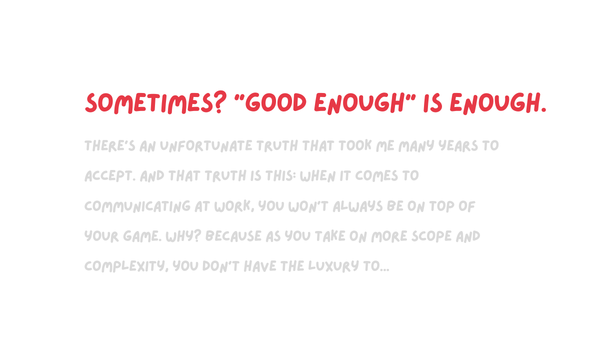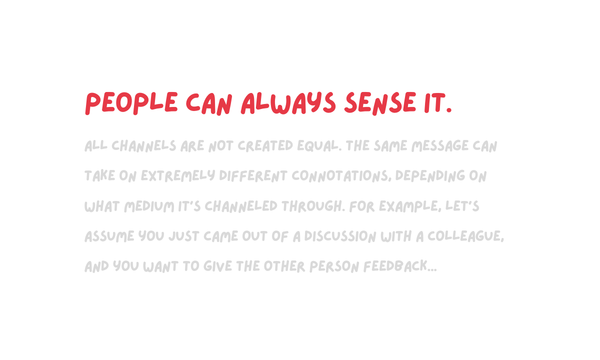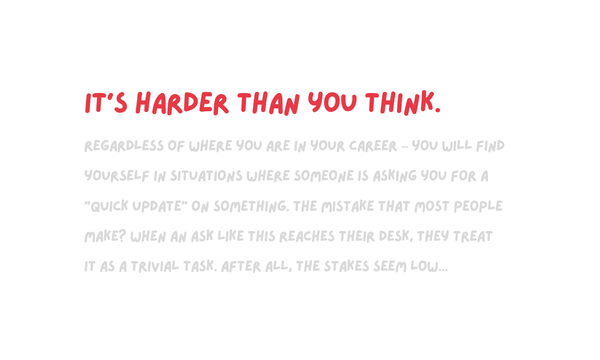3 Career Stories from Google VPs that have Stuck with Me

One of my favorite things about Google is its emphasis on interpersonal connections.
This is certainly true on a day-to-day basis: for instance, Googlers will often reach out to one another for one-on-one coffee chats even if there is no burning business agenda, with the goal simply being to develop a closer personal connection.
This culture is also apparent when it comes to how senior leadership cultivates connections with wider team members. Townhall meetings at Google almost always carry live Q&A components, during which any Googler can put leadership on the spot and ask them questions.
Of course, as nice as it is to have these forums, most of the time you tend to only get generic platitudes from leadership. After all, once these forums grow above a certain group size, leaders tend to mince words, lest things get taken out of context.
The one exception, however, is when leaders talk about career advice. This is when their stories tend to be genuine, interesting, and personal. Now, while I’ve listened to my fair share over the years, a select few have especially stuck with me.
#1 “Why haven’t you tried to solve it?”
A VP once shared this story that happened early on in his career at Google.
At the time, he had identified an important issue regarding an external partner, and he flagged it to his manager at the time. Once he finished his spiel, expecting to get brownie points for his acumen, his manager simply asked:
…So why haven’t you tried to solve it?
The message was clear: it’s good to proactively identify challenges, but it’s not good enough. That’s not what extreme ownership looks like. Extreme ownership and full accountability means jumping in yourself directly, and proactively finding ways to solve that challenge.
You don’t get brownie points for standing on the sidelines and pointing at the problem.
This story has stuck with me since then. From that point on, whenever I run into a problem, I try asking myself first: have I done everything I can to solve it? Even if it’s not my problem to solve, I try channeling this voice in my head, and challenge myself to think like an owner.
#2 Ask to problem-solve together
I once asked a VP how she approached mentorship and sponsorship in the company, specifically her own experiences as the more junior person in these relationships.
She shared one tip with me and the group.
Her advice was to treat these conversations with mentors and sponsors as an opportunity to problem-solve together. Bring a problem that you’re working on and discuss it with the other party. This is one of the best ways to cultivate a meaningful relationship, give the other person visibility on what you’re working on, and seek guidance in a way that goes beyond simply holding out your hand.
I have tried doing this ever since then, and I’ve found that conversations with senior leaders now flow much more naturally. In the past, I struggled: one-on-one time with senior leaders always felt intimidating and awkward, as I was constantly on edge throughout the session, trying to ensure I had enough smart-sounding questions (while trying to avoid awkward silences in between).
Now, however, I felt much more at ease. I would bring a problem that I’m working on, set the context, explain my thinking and my approach, and frame it as an interactive discussion for me to get valuable perspectives. All of a sudden things flowed much more naturally and the dynamics felt much more genuine.
Ironically, by making myself more vulnerable (i.e. here’s a problem I’m wrestling with that I would love to pick your brain on), and by talking about something I actually cared about, I found myself more poised in these conversations.
Better yet: I suspect the leaders on the other side of the table found it much more interesting and engaging to problem-solve together, rather than participating in a one-way street where I expected them to give a series of soliloquies.
#3 “Help others get promoted.”
The last story here came from a VP who worked in the Product Partnerships space, and spent a lot of time working with Product Managers. When asked for career advice, this is what he said:
This is my secret formula: I try to give credit and shine the spotlight on people that I work with. As much as possible. The reason is simple: none of the meaningful problems at Google can be solved by one person alone, and to make any progress, you need to find ways to bring the best people you can find to work on something together.
Here's why. If you can bring good people together to solve a problem, give them all the credit in the world, and even help them get promoted — naturally they will want to keep working with you. Fine, plain and simple.
But here’s where it gets more interesting: when other good people see that good people want to work with you, they will want to work with you themselves — and thus you get even more done and demonstrate even bigger impact.
This is when the winning formula kicks in. More people will trust you and will want to work with you, and then you deliver even more impact. And so on and so forth.
This is when it becomes an upwards spiral. Success begets success. This is what the VP meant by the winning formula. He said that his approach is simple: identify the hardest problems, bring the best people together, enable them to succeed, and repeat.
The key is that the reverse is true: you can easily be stuck in a downward spiral. If you cannot deliver results and create a culture where good people want to work with you again, then others won’t either. Then you won’t get much done, and thus people have even less motivation to work with you.
This was an epiphany to me, despite its simplicity. I had never had an ego myself, and was always the first to give credit to my teammates, but I had never thought of the multiplier effect and the meta-game at work here.
From that point on I became much more intentional about this. And I loved the paradoxical nature of the lesson, which is that:


